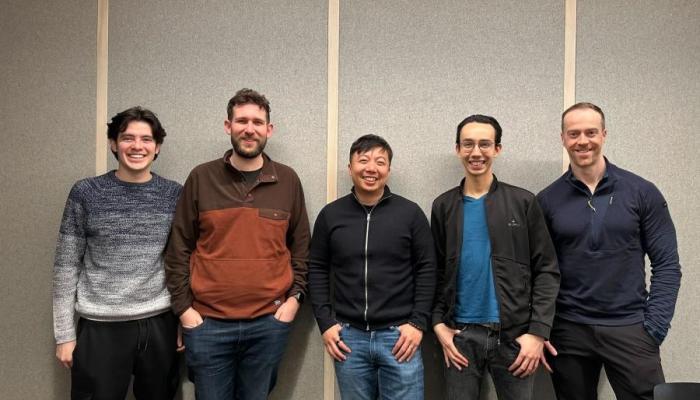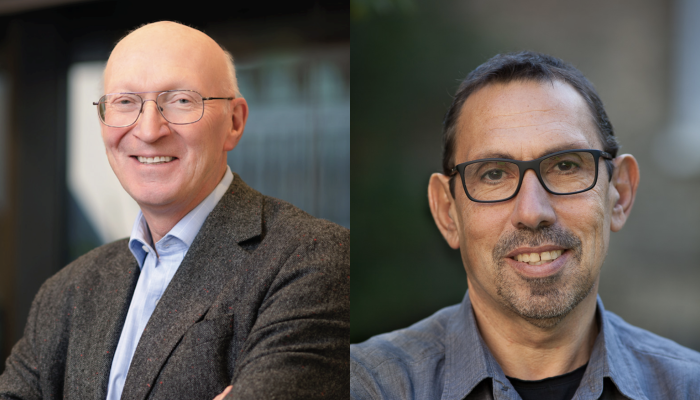
- SB000 reverses cellular ageing as measured by DNA methylation clocks in multiple cell types without loss of cellular identity or signs of pluripotency
- Study advances efforts towards next-generation rejuvenation therapeutics with applications across age-driven diseases
Cambridge, UK, 9 June 2025: Shift Bioscience (Shift), a biotechnology company uncovering the biology of cell rejuvenation to develop new therapies for age driven diseases, today announced the publication of new research identifying a novel, single-gene target for cellular rejuvenation (1). Capable of reversing cellular aging across multiple cell types, without inducing dangerous pluripotency pathways seen in other approaches, SB000 is well positioned as a target for safer, next-generation cell rejuvenation therapeutics, with broad application across age-driven diseases.
Existing approaches to cell rejuvenation primarily focus on the Yamanaka Factors (OSKM), a combination of genes that can be used to reverse cellular aging but are known to induce pluripotency that may result in tumorigenesis, limiting their use in a therapeutic setting. In this seminal study, SB000 demonstrated cellular rejuvenation at both methylome and transcriptome levels across multiple cell types without evidence of pluripotency. Not only is this approach safer when compared to OSKM, it also demonstrated comparable methylome rejuvenation, consistently across multiple cell types.
Dr Daniel Ives, CEO, Shift Bioscience, said: “The discovery of SB000 marks a major milestone, both for Shift and for the cell rejuvenation field more broadly, and demonstrates the power of our unique, dataset-driven approach to target identification. Offering comparable efficacy to the Yamanaka Factors without the safety concerns associated with pluripotency, SB000 is well positioned as a target for next-generation, safer cellular rejuvenation therapeutics, helping us bring about a future where we have substantial control over the aging process and age-related diseases. We are pleased to progress SB000 on to proof-of-concept studies and expect this paper to be the first in a series of publications as we uncover the previously hidden biology of cellular ageing and rejuvenation.”
Shift Bioscience will now proceed with further studies to progress SB000 as a therapeutic target, including research to confirm efficacy across an even broader range of disease-relevant cell types, and to advance to in vivo proof-of-concept rejuvenation studies.
1. https://www.biorxiv.org/content/10.1101/2025.06.05.657370v1
Paper Summary
Current approaches to cell rejuvenation therapeutics focus primarily on the Yamanaka factors (OSKM), although these are known to induce a dangerous pluripotency pathway, hindering their viability for therapeutic use. In this paper, Shift Bioscience presents SB000, a novel, single-gene target for cell rejuvenation.
SB000 demonstrates comparable efficacy to OSKM across multiple cell types, without loss of cellular identity or evidence of pluripotency, positioning it as a target for next-generation rejuvenation therapeutics that are broadly applicable across age-driven diseases.
Aging is the primary common risk factor across almost the entire spectrum of disease
All somatic cells in the body age – to reverse age and combat disease, we must design drugs that apply to all cell types
‘Cell aging clocks’ are used to accurately assess cell and tissue age
DNA methylation clocks are accurate age predictors across tissues and cell types
Blood-based aging clocks provide accurate predictions of mortality
A pathway involving four genes, OSKM, has been shown to reverse aging in DNA methylation clocks across multiple cell types. Unfortunately, OSKM also induces pluripotency that may result in loss of cellular identity and tumorigenesis, limiting its potential for cell rejuvenation therapeutics
Through significant strides in the Company’s virtual cell and cell aging clock technology, Shift has discovered SB000 – a new, single gene target that effectively reverses DNA methylation clocks in multiple cell types, without activating pluripotency pathways
This research paves the way for a new generation of rejuvenation drugs that can be applied across major age-associated diseases.
Significance to reprogramming field
Compared to OSKM, Shift has identified a safer rejuvenation approach with comparable efficacy
Discovery of a single gene that rejuvenates both the cell methylome and transcriptome
Gene shows twice the magnitude of cell methylome rejuvenation compared to OSKM, and retains the ability to rejuvenate multiple cell types
Unlike OSKM, the gene does not induce pluripotency and maintains cell identity
Next steps
Shift will now be conducting further research to advance this potential new gene target, including to:
Confirm a broader range of cell types can be rejuvenated
Demonstrate rejuvenated cells exhibit the same behavior as younger cells
Progress to proof-of-concept rejuvenation studies in mouse models
About Shift Bioscience
Shift Bioscience is a biotech company uncovering the biology of cell rejuvenation to develop new therapies for age-driven diseases.
Cell aging is the primary, underlying driver for many of today’s major diseases, but is yet to be truly leveraged as a therapeutic target. Operating at the intersection of machine learning and cell biology, Shift’s narrow-AI approach leverages large-scale, proprietary multiomic datasets to uncover the hidden biology of cell aging and rejuvenation. Through this, the Company has built a robust pipeline of rejuvenation targets, including SB000 – a novel, single-gene target capable of cell rejuvenation across multiple cell types.
Shift Bioscience was founded in 2017 by Dr Daniel Ives, CEO, and Dr Brendan Swain, CSO. The Company is based at the Gurdon Institute, Cambridge thanks to the Frame Shift bio-incubator, an initiative of the Milner Therapeutics Institute, and has additional computational facilities in Toronto, Canada.
Follow Shift Bioscience on LinkedIn @ShiftBioscience and X @ShiftBioscience



